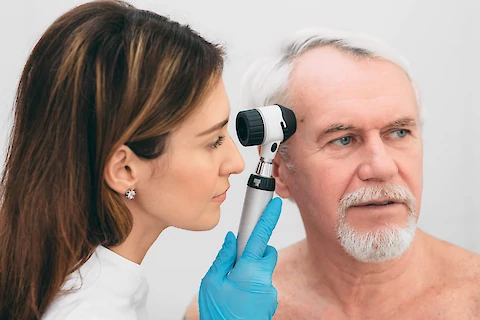
As you age, your skin undergoes changes, making it essential for seniors to be vigilant about their skin health. This includes regular skin cancer screenings, which can be vital in detecting the early stages of skin cancer and ensuring prompt treatment. If you are a senior who has never had a skin cancer screening before, you may feel nervous or unsure about what to expect. Here are some things to expect:
What Is Skin Cancer Screening?
While skin cancer screenings may not be part of your routine doctor's visits, they can be crucial to maintaining your overall health, especially for seniors. These screenings involve a thorough examination of your skin to detect any signs of skin cancer, such as melanoma, squamous cell carcinoma, and basal cell carcinoma. Early detection is key, as it allows for more effective treatment and better outcomes.
Preparing for a Skin Cancer Screening
Before you go for a skin cancer screening, the first step is to find a suitable local medical clinic. You can ask friends, family, or your primary care physician for recommendations. Once you've chosen a clinic, schedule an appointment and gather the necessary documents, such as your medical history and insurance information.
The Skin Cancer Screening Process
Upon arrival at your appointment, you'll meet with a healthcare professional, such as a dermatologist or a nurse practitioner who specializes in skin health. They will discuss your personal and family medical history and address any concerns or questions you may have. You want to be honest and provide accurate information to ensure a thorough assessment of your skin.
Physical Exam
Next comes the physical examination, where the healthcare professional will visually inspect your skin surface for any abnormalities, such as moles, lesions, or growths. They may use a dermatoscope, a specialized tool with a magnifying lens and light, to examine suspicious areas more closely. The examination is generally non-invasive and painless, and you should not feel any discomfort during the process.
Biopsy
If the healthcare professional discovers any suspicious areas, they may recommend a biopsy to determine if it is indeed skin cancer. There are various types of biopsies, such as shave, punch, or excisional, and the chosen method will depend on the specific situation. The procedure involves removing a small sample of the skin and sending it to a laboratory for further analysis. Your healthcare provider will give you clear instructions on follow-up care and wound care after the biopsy.
Review the Results of the Biopsy
Once the results of the biopsy are available, your healthcare professional will go over the findings with you. If your results are negative, this means that no signs of skin cancer were detected, and you can continue with your regular healthcare routine. However, if the results are positive, your healthcare provider will explain the type and stage of skin cancer and discuss appropriate treatment options. Attending regular follow-up appointments to monitor your skin cancer and address any changes or concerns is crucial.
How to Minimize the Risk of Skin Cancer
Preventing skin cancer is just as important as early detection. Sun protection is key – apply sunscreen with a minimum SPF of 30, wear protective clothing like wide-brimmed hats and sunglasses, and seek shade whenever possible. Regular self-examinations can also help you stay aware of any skin changes or new growths. Additionally, be mindful of your risk factors, such as a family history of skin cancer or excessive sun exposure, and take necessary precautions.
Senior Helpers Fort Collins Offers Transportation to Skin Cancer Screenings
Skin cancer screenings are essential to maintaining your skin health and overall well-being, especially for seniors. You can feel more confident and prepared for your appointment with a clear understanding of what to expect during a screening. If you're a senior living in Fort Collins, Englewood, Littleton, Lone Tree, Loveland, Greeley, Wellington, Windsor, Estes Park, or Longmont, Senior Helpers Fort Collins can help. Don't hesitate to contact us for assistance in scheduling a skin cancer screening appointment and transportation. Your skin health is important – take action to protect it today!